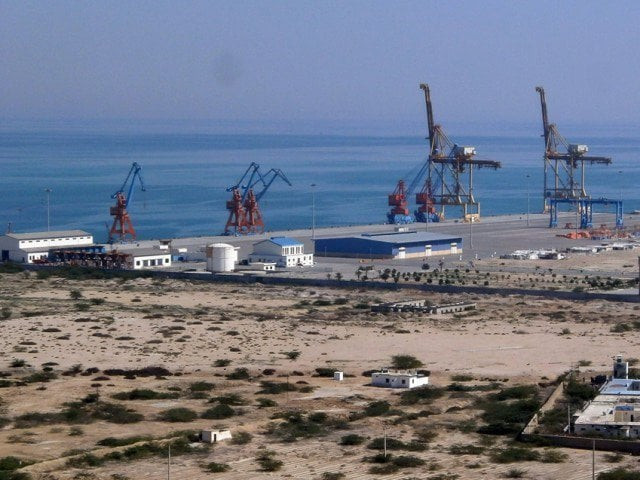Enormous opportunities, challenges for Pakistan
Analysts for capitalising on CPEC, trade with India, and reconciling with Kabul

PHOTO: AFP
Diplomats and security experts have cautioned about some major developments taking place in the South Asian region, that, according to them, present enormous opportunities as well as challenges.
This was the crux of a panel discussion on “Changing South Asia: Challenges and Opportunities for Pakistan” organised by the Institute for Policy Reforms on Tuesday.
Iran nuclear deal, a government in Kabul seriously interested in improving ties with Pakistan, and the China-Pakistan Economic Corridor (CPEC) are some of the key developments taking place in today’s South Asia which present enormous opportunities for Pakistan.

The country, however, needs to ensure that these opportunities do not become challenges, they said.
Former foreign secretary Riaz Khokhar said China was a major economic power and virtually at par with the United States so its policy could not be viewed in isolation.
“Complicated and complex developments are taking place in the South Asian region due to which one cannot isolate China’s policy. Moreover, China is not excluding India in any of its plans, something that we should remember at all times,” he said.

“China has always advised us to focus on the economic development. It has never excluded any country in its strategic and economic plans. Even Iran is a part of its plans since one branch of the silk route will be passing through Iran”, Khokhar who had served as ambassador to China India and US, said.
Read: CPEC - a window of opportunity for Pakistan
He said despite its concerns related to security and capacity, China put its stake in Pakistan. “The question now is how we utilise this opportunity”, Khokhar concluded.
Talking about the Indian aspect, TV show host Ejaz Haider said whenever India was discussed, the discussion was less about economy and trade and more about security, which showed how security was a big concern.
“We need to look at our foreign policy not just through military means but also through non-military means”, he suggested.
“One of the most important areas is to engage India in trade. Trade is a great way to send out a positive message not just to India but also internationally,” Haider said.

Former ambassador Khalid Mehmood discussed Pakistan-Iran relations in the backdrop of regional and international situation. “With Taliban out of the scenario, the prospects of Pakistan and Iran relations seem positive,” he said and added that the Yemen crisis badly affected Pakistan’s relations with Iran.
Read: China, Punjab shake hands over cement plant
US Institute of Peace South Asia Programmes Director Moeed Yusuf said Kabul for the first time in recent years, under President Ashraf Ghani, was interested in reconciliation within and without. He said Pakistan should capitalise on this opportunity because, he predicted, after President Ghani situation may not be very smooth.
Institute of Policy Reforms Chairperson Humayun Akhtar Khan, who moderated the discussion, said recent developments held hope for stability and growth in the region yet the outcome depended on how leaders shaped these developments. He said there was a risk of opportunities turning into challenges.
Published in The Express Tribune, August 19th, 2015.



















COMMENTS
Comments are moderated and generally will be posted if they are on-topic and not abusive.
For more information, please see our Comments FAQ